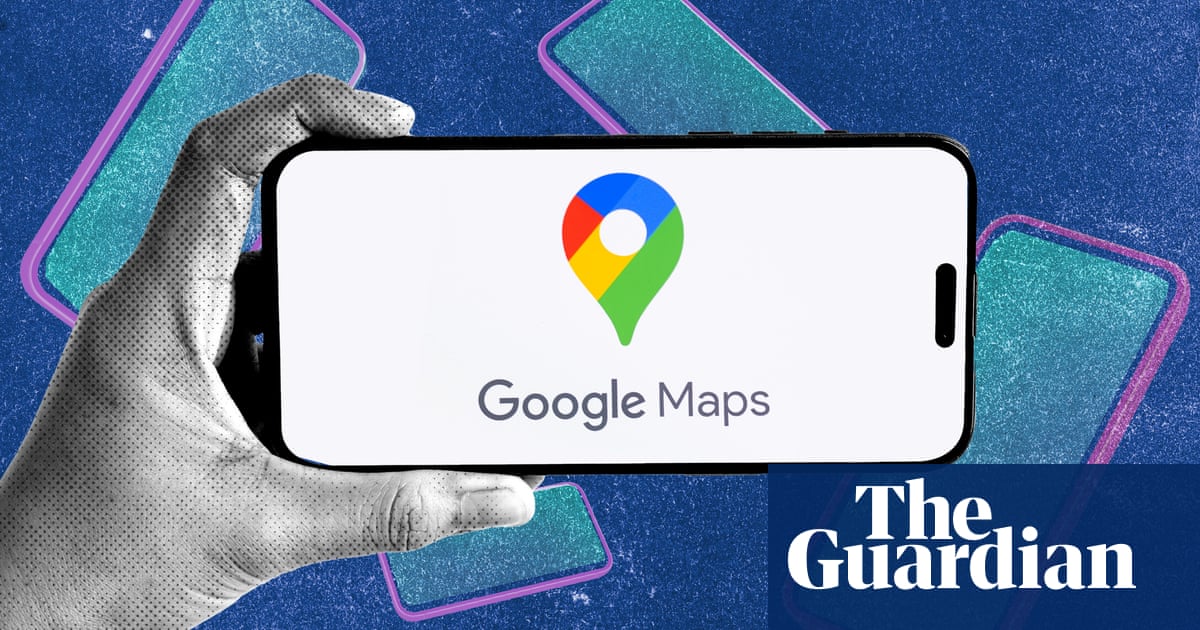There is a certain kind of guy who looks atGoogle Mapsfor fun. I am that guy. As a kid I went through a cartography phase, drawing elaborate maps of fictional islands and poring over the family street directory in an effort to reconcile the lines and dots on the overcrowded pages with the streets, shops and friends’ houses in my mind’s eye. You could say that phase never really ended.
In much the same way as some people will pull up a movie’s IMDb entry the second they start watching, any time I come across an interesting town, country or geographical oddity (which is often in the news business), I’m firing up Maps to see what topographical morsels I can uncover. I’m noGeoGuessrsavant, but I’ve spent many pleasant hours puzzling over interesting enclaves and panhandles, or pootling around far-flung locales in Street View. After finishing a recent episode of Severance I opened a tab and took an armchair tour through the remote Newfoundland island where it was shot.
I’m not exactly uncovering some mysterious corner of the internet here. Google Maps is so ubiquitous it’s become a utility – admitting I open it for fun feels like extolling the virtues of the Calendar app, or calling up Centrelinkjust to enjoy the hold music. There are plenty of other perfectly decent navigation apps out there – but Google Maps’ special sauce is its mountain of user-generated data.
The key to Google Maps’ power is its volunteer workforce of obsessive “local guides”. Clicking on these profiles feels vaguely illicit, like you’re tracking them for Asio. These are the users who log their every move, amassing hundreds of reviews of everything from restaurants to payphones, detailing opening hours, accessibility features and taking some of the worst food photography you’ve ever seen. I do not understand these people and their currency of points and badges, but I am grateful for them. There is a man who has reviewed every public postbox in Ballarat and had opinions about them all. My nearest bus stop has a 3.3-star rating and a single review: “It’s just a bus stop.” OK!
Some Google Maps discoveries feel like stumbling into someone else’s private joke. Not far from my girlfriend’s house, an unremarkable piece of tarmac has been dubbed“Tristan’s Roundabout”– its reviews tab populated with tourist selfies and comically overblown praise for the intersection and the eponymous Tristan, who responds to each reviewer in equally effusive terms.
In the surrounding streets you can find reviewers waxing lyrical over such local sights as ahole in the groundorabandoned trailer, and writing glowing tributes to afriendly orange catnamedFlumpy. Passing these waypoints as I move around the neighbourhood feels like a digital scavenger hunt – an act of noticing and recording the small quirks of suburban life.
This is where the real joy of Google Maps lies: in the moments when you get to see humans being playful with the otherwise prosaic tools at their disposal. It’s in the social media bots showcasingrandom restaurantsandnew towns every hour, pegged to Google Maps data. It’s in people using Street View tostave off homesicknessorhold on to those they’ve lost, or using Google’s all-but-abandoned My Maps tool to share lists ofpublicly accessible fruit trees. It’s the instances where some kind of bug or human error leads to anIndonesian supermarket appearing in Antarctica– a reminder that these tools can be messy and imperfect, just like us.
This article includes content hosted on embed.bsky.app. We ask for your permission before anything is loaded, as the provider may be using cookies and other technologies. To view this content,click 'Allow and continue'.
Maps are loaded with political and imperialist symbolism, and Google is arguably more responsible for the dire state of the internet than most. I’m sure the product managers are, at this moment, brainstorming ways to shoehorn ever more AI slop into our maps. But for now, when the internet feels like a constant stream of noise, it’s nice to unwind by going for a leisurely scroll around the neighbourhood.
